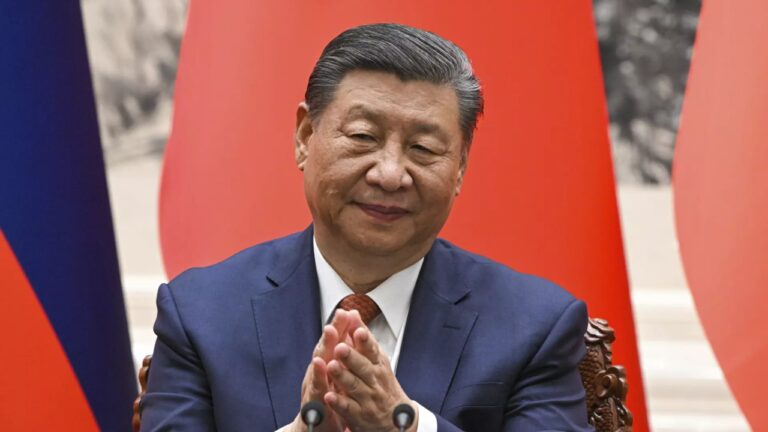NEW DELHI: Chinese President Xi Jinping on Friday cited the Panchsheel Principles agreed with India in 1954 as a framework for resolving contemporary geopolitical disputes and expanding China’s influence in the southern hemisphere amid rising tensions with the West.
At a meeting marking the 70th anniversary of the Panchsheel Agreement, President Xi said, “The Five Principles of Peaceful Coexistence responded to the demands of the times, and their inception was an inevitable historical development. Past Chinese leaderships for the first time comprehensively articulated the five principles of ‘mutual respect for sovereignty and territorial integrity,’ ‘mutual non-aggression,’ ‘non-interference in each other’s internal affairs,’ ‘equality and mutual benefit’ and ‘peaceful coexistence.'”
“These included the Five Principles of the China-India and China-Myanmar Joint Statements which we jointly called for to be the basic norms for relations between our countries,” he added, speaking to former Sri Lankan President Mahinda Rajapaksa and other political leaders and government officials from various countries that have had close ties with China for many years.
“The Five Principles of Peaceful Coexistence were born in Asia but quickly made their way onto the world stage. In 1955, more than 20 Asian and African countries attended the Bandung Conference,” Xi recalled in his speech.
“The Five Principles set a historic standard for international relations and the rule of international law,” he added.
According to the Ministry of External Affairs, the Panchsheel Guidelines were first formally declared in the Trade and Exchange Agreement between the Tibetan Region of China and India, signed on April 29, 1954.
The five principles formed part of the legacy of the then Prime Minister Jawaharlal Nehru and China’s Zhou Enlai’s failed attempts to find a solution to the complex border issue.
Xi’s claims come as he begins an unprecedented third term as China’s president, during which China has aggressively pursued initiatives such as the Belt and Road infrastructure investment plan to boost its global influence but has faced accusations of debt-trap diplomacy from some recipient countries.
Facing strategic competition from the United States and Europe, the Chinese government has prioritized strengthening ties with countries in Asia, Africa and Latin America under the banner of the “Global South.”
At a meeting marking the 70th anniversary of the Panchsheel Agreement, President Xi said, “The Five Principles of Peaceful Coexistence responded to the demands of the times, and their inception was an inevitable historical development. Past Chinese leaderships for the first time comprehensively articulated the five principles of ‘mutual respect for sovereignty and territorial integrity,’ ‘mutual non-aggression,’ ‘non-interference in each other’s internal affairs,’ ‘equality and mutual benefit’ and ‘peaceful coexistence.'”
“These included the Five Principles of the China-India and China-Myanmar Joint Statements which we jointly called for to be the basic norms for relations between our countries,” he added, speaking to former Sri Lankan President Mahinda Rajapaksa and other political leaders and government officials from various countries that have had close ties with China for many years.
“The Five Principles of Peaceful Coexistence were born in Asia but quickly made their way onto the world stage. In 1955, more than 20 Asian and African countries attended the Bandung Conference,” Xi recalled in his speech.
“The Five Principles set a historic standard for international relations and the rule of international law,” he added.
According to the Ministry of External Affairs, the Panchsheel Guidelines were first formally declared in the Trade and Exchange Agreement between the Tibetan Region of China and India, signed on April 29, 1954.
The five principles formed part of the legacy of the then Prime Minister Jawaharlal Nehru and China’s Zhou Enlai’s failed attempts to find a solution to the complex border issue.
Xi’s claims come as he begins an unprecedented third term as China’s president, during which China has aggressively pursued initiatives such as the Belt and Road infrastructure investment plan to boost its global influence but has faced accusations of debt-trap diplomacy from some recipient countries.
Facing strategic competition from the United States and Europe, the Chinese government has prioritized strengthening ties with countries in Asia, Africa and Latin America under the banner of the “Global South.”

